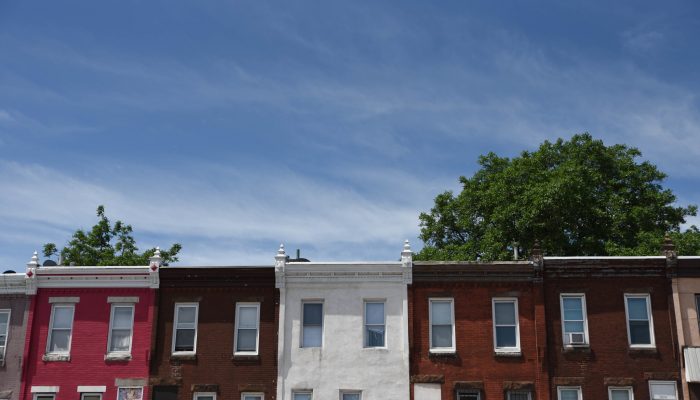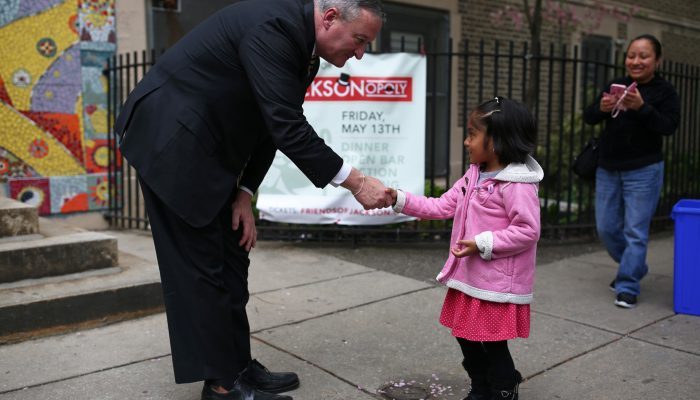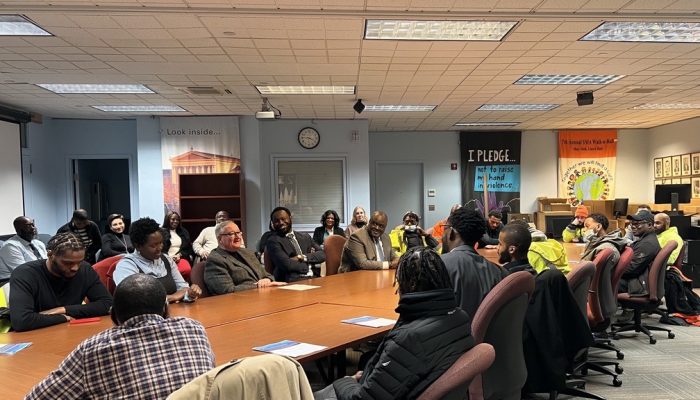In his budget speech to City Council, Mayor Kenney proposed a major new investment to support Philadelphia’s low-income renters. PHLRentAssist will enable youth and families to maintain stable housing, prevent the painful consequences of eviction and displacement, and provide a critical foundation necessary for youth and families to access opportunity and move out of poverty permanently.
According to the Federal Reserve Bank of Philadelphia, over half of renters in Philadelphia are “rent-burdened,” meaning they pay more than 30 percent of their income on housing. We now understand that eviction is not just the result of poverty, but a cause, and that it disproportionately impacts women of color and their households, and youth aging out of foster care.
PHLRentAssist will provide a subsidy that fills the gap between what youth and families can afford to pay and the actual cost of rent. Importantly, we will ensure that PHLRentAssist is independently and rigorously evaluated to determine its impact to find out what works to support youth and families struggling to maintain stable housing.
People in poverty have different needs. Rather than a one-size-fits-all solution, PHLRentAssist will provide targeted services to different populations, with a focus on youth aging out of foster care, low-income working families, and chronically homeless individuals with disabilities:
Supporting youth aging out of foster care at the greatest risk of experiencing homelessness
Youth ages 21-24 exiting the foster care system without a permanent resource — such as having been reunified with their family or having been adopted — face particular challenges achieving housing stability. This, in turn, may prevent them from accessing education and career opportunities. As a result, too many foster care youth end up in the City’s homelessness shelter system. PHLRentAssist will help youth achieve and maintain stable housing, and also will connect them to workforce and higher education opportunities, including through the Community College of Philadelphia.
Testing an innovative flexible voucher to help low-income working families meet their housing expenses
Many working families hold multiple jobs, yet struggle to put food on the table, pay for child care, and keep a roof over their heads. Housing assistance to these families who are in or near poverty has long been provided predominantly through a voucher paid to the landlord, but recent studies have tested a more flexible approach that empowers families to make their own financial decisions.
PHLRentAssist will test these two approaches side-by-side: a traditional rent voucher paid to the landlord and a flexible voucher, referred to by some programs as a cash transfer, paid directly to families. This new approach will answer calls to find innovative new ways to address poverty that give families with children the flexibility and dignity to make their own choices about meeting their household’s needs. The City will be working with expert researchers to design and evaluate this approach. Findings from the evaluation may inform Philadelphia’s approach to rent support moving forward, and could break new ground informing housing policy and programs at a state or national level.
Expanding existing supports to chronically homeless individuals with disabilities
According to the 2018 American Community Survey, nearly a quarter of Philadelphians in poverty have a disability. Through its HOME$200 program, the Office of Homeless Services provides services and a rent subsidy to 85 individuals who are chronically homeless, currently living in emergency housing, and receiving SSI or SSDI income for a disability. This new investment will double the number of individuals served through this program, helping to stabilize some of the city’s most vulnerable chronically homeless individuals.
The Kenney Administration is proposing investing over $6.6 million in FY21 and nearly $33 million over the Five Year Plan in General Fund dollars. This investment will leverage an additional $3 million in FY21 and $15 million over five years in existing Housing Trust Fund dollars. The City’s total proposed investment in PHLRentAssist will be $47.5 million over the Five Year Plan.
The goal of PHLRentAssist is to prevent eviction and the cascading negative effects of displacement. A safe, stable place to live is a necessary foundation for people to participate in the workforce, for children to go to school, and for youth to pursue a credential and get the education to help them move out of poverty. Mayor Kenney looks forward to working with City Council and partners across the city to support Philadelphia’s low-income renters.




